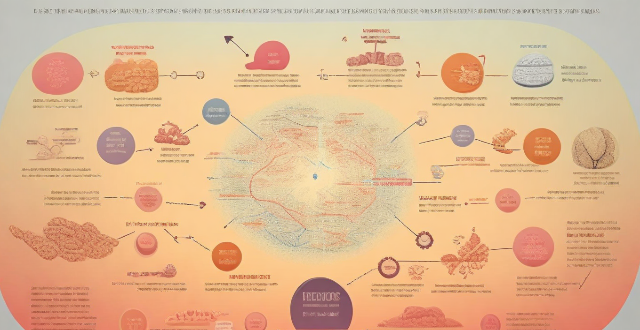Energy Exercise

How does exercise physiology help in preventing sports injuries ?
Exercise physiology helps prevent sports injuries by understanding body mechanics, energy systems, and recovery needs. Athletes can reduce injury risk through proper warm-up/cool-down, cross-training, progressive overload, and sufficient recovery time.

How can I incorporate aerobic exercise into my daily routine ?
Incorporating aerobic exercise into your daily routine can improve cardiovascular health, burn calories, and enhance mood and energy levels. Here are ways to seamlessly incorporate aerobic exercise into your day: 1. **Morning Vigor**: Start the day with activities like jogging, cycling, or jump roping. 2. **Lunch Break Activities**: Use your lunch break for stair climbing, walking meetings, or yoga. 3. **Post-Work Energy Booster**: After work, engage in gym sessions, outdoor sports, or dancing. 4. **Evening Wind-Down**: Before bedtime, consider gentle exercises like evening walks, Tai Chi, or swimming. 5. **Weekend Adventures**: On weekends, engage in longer duration exercises like hiking, biking, or water sports. 6. **Lifestyle Integration**: Make aerobic exercise a habit by commuting actively, doing active errands, or using fitness trackers.

You have made several mistakes in running. Pay attention to diet and provide correct energy for running

Is it safe to exercise during pregnancy and what precautions should be taken ?
Is it safe to exercise during pregnancy? Yes, as long as you follow certain precautions and guidelines, including consulting your healthcare provider, choosing appropriate exercises, listening to your body, staying hydrated, wearing comfortable clothing, using proper technique, avoiding lying flat on your back, not pushing yourself too hard, cooling down properly, and being mindful of environmental factors. Exercise can have numerous benefits for pregnant women, such as reducing the risk of gestational diabetes, improving mood, increasing energy levels, and helping with recovery after birth.

How does exercise improve mental health ?
The article discusses how exercise improves mental health by reducing symptoms of depression and anxiety, improving mood, and enhancing cognitive function. It highlights the release of endorphins, regulation of neurotransmitters, stress reduction, increased energy levels, better sleep quality, enhanced self-esteem, improved memory and attention, reduced risk of cognitive decline, and promotion of neuroplasticity as mechanisms through which exercise positively impacts mental well-being. The conclusion emphasizes the importance of regular physical activity for overall well-being and advises consulting a healthcare professional before starting any new exercise program.

Can exercise help manage symptoms of ADHD ?
Exercise can be a powerful tool in managing symptoms of ADHD by improving focus, reducing impulsivity, increasing energy levels, and promoting better sleep. Choosing the right type of exercise, setting realistic goals, and creating a consistent routine are essential for reaping the full benefits of physical activity for ADHD management.

Can regular exercise help with insomnia ?
Insomnia, a sleep disorder making it hard to fall or stay asleep, affects many. Regular exercise is emerging as a natural remedy for insomnia. Exercise can positively impact sleep quality and duration by regulating the circadian rhythm and releasing endorphins. It also reduces stress and anxiety, leading causes of insomnia. Regular exercise boosts energy levels and mental health, further promoting better sleep. The recommended amount is 150 minutes of moderate-intensity activity weekly, including muscle-strengthening exercises. Tips for exercising with insomnia include choosing low-impact activities, avoiding high-intensity workouts at night, establishing a routine, being mindful of caffeine intake, and consulting a doctor before starting an exercise program.

Is it better to do aerobic exercise in the morning or evening ?
The best time to do aerobic exercise depends on your personal preferences, schedule, and individual needs. Morning exercise can boost metabolism, improve mental clarity, and increase energy levels, but it may also be challenging to wake up early enough and could lead to lower performance and joint stiffness. Evening exercise can reduce stress, improve flexibility, and promote relaxation, but it may interfere with sleep, have time constraints, and cause fatigue. It's essential to listen to your body and choose a time that works best for you while maintaining consistency in your fitness routine.

Are there any specific diets that enhance exercise efficiency ?
Yes, there are specific diets that can enhance exercise efficiency. These include a high-carbohydrate diet for energy, a low-fat diet for weight management and cardiovascular health, a high-protein diet for muscle recovery and maintenance, and a plant-based diet for optimal nutrient intake. Examples of foods in each diet category are provided, along with the benefits they offer for exercise efficiency. It is recommended to consult with a healthcare professional before starting any new diet plan.

How do exercise programs impact employee productivity and job satisfaction ?
Exercise programs have a significant impact on employee productivity and job satisfaction. Companies can improve employee health, reduce stress levels, enhance team building, increase energy levels, improve mental clarity and cognitive function, reduce absenteeism and tardiness, enhance work-life balance, increase motivation and engagement, and improve company culture and retention rates by promoting a healthy lifestyle and providing opportunities for physical activity. Implementing exercise programs should be considered a valuable investment for any organization looking to improve its overall performance and success.

What is the relationship between exercise physiology and nutrition for athletes ?
The article discusses how exercise physiology and nutrition are interconnected for athletes, with each influencing the other. It defines exercise physiology as the scientific study of how the body functions during physical activity, covering areas like energy systems, muscle function, cardiovascular responses, respiratory functions, and thermoregulation. Nutrition for athletes involves strategic eating plans to enhance performance, aid recovery, and maintain overall health, focusing on macronutrients, micronutrients, hydration, and timing of intake. The intersection of these two aspects includes fueling performance, recovery and repair, hydration and thermoregulation, energy balance, supplementation, and dietary needs variation. A comprehensive understanding of both exercise physiology and nutrition is crucial for athletes to achieve peak performance.

How does stress management through exercise impact professional well-being ?
The impact of stress management through exercise on professional well-being is significant and positive. Professional well-being refers to overall satisfaction and happiness in the workplace, which includes job satisfaction, work-life balance, relationships with colleagues, and personal growth opportunities. Exercise is a proven method for managing stress, as it releases endorphins and reduces levels of stress hormones like cortisol and adrenaline. Regular physical activity also promotes better sleep, essential for stress management. The impact of exercise on professional well-being includes improved mental health, enhanced cognitive function, increased energy levels, better work-life balance, and improved interpersonal relationships at work. By incorporating regular physical activity into our daily routine, we can achieve these benefits, leading to increased productivity, reduced absenteeism, and improved job performance. Therefore, organizations should promote exercise among their employees as part of their overall wellness program.

What are the benefits of aerobic exercise ?
Aerobic exercise, also known as "cardio," is a form of physical activity that increases your heart and breathing rate. It's any activity that keeps large muscles moving in a rhythmic manner for an extended period of time. Some examples include brisk walking, jogging, swimming, cycling, and dancing. The key benefits of aerobic exercise include improved heart health, weight management, boosted immune system, improved lung function, reduced stress, improved sleep, boosted mood, increased brain volume, slowed age-related cognitive decline, improved stamina, enhanced bone health, and promoted longevity. Incorporating aerobic exercise into your lifestyle can greatly improve your quality of life.

What role does cardiovascular exercise play in managing daily stressors ?
Cardiovascular exercise is an excellent way to manage daily stressors, as it reduces the body's physiological response to stress and leads to improved mental and physical health. The benefits of cardiovascular exercise include reduced stress levels, improved sleep quality, increased energy levels, and better mental health. To get started with cardiovascular exercise, set goals, start slow, find activities you enjoy, and mix up your workouts. Incorporating cardiovascular exercise into your daily routine can help you manage stress and improve overall well-being.

How does exercise benefit employees in the workplace ?
Exercise benefits employees in the workplace by improving health and well-being, increasing productivity, promoting teamwork, and providing long-term business advantages such as lower healthcare costs and higher employee retention.

How does regular exercise contribute to occupational health ?
**Summary: Regular Exercise in Occupational Health** The article discusses the role of regular exercise in promoting occupational health, which encompasses physical, mental, and social well-being. It outlines the benefits of regular physical activity, including improved stamina, reduced injury risk, enhanced immune system, stress reduction, better cognitive function, increased resilience, team building, and a healthy work-life balance. The text emphasizes that incorporating exercise into daily routines can significantly enhance job performance and overall employee well-being. Employers are encouraged to implement wellness programs with exercise initiatives to foster a healthier and more productive workforce.

Is it true that exercise can help manage chronic pain conditions ?
Exercise can help manage chronic pain conditions by reducing pain intensity, improving physical function, enhancing quality of life, and increasing energy levels. It is important to consult with a healthcare professional before starting any exercise program and to start slowly, gradually increasing intensity over time while listening to your body's responses.

Can aerobic exercise help me lose weight ?
Aerobic exercise, or cardio, is an effective way to lose weight. It increases heart rate and breathing, leading to higher calorie burn during and after the workout. Moderate-intensity aerobic activities also use fat as fuel, improving metabolic rate for further calorie expenditure at rest. Regular cardio can strengthen heart muscles for efficient blood pumping and contribute to muscle endurance. Types of aerobic exercises include running, cycling, swimming, walking, and group fitness classes like Zumba. To successfully incorporate aerobic exercise into a weight loss plan, it's recommended to start slowly, mix up activities, stay consistent, and combine with strength training. Potential challenges such as overexertion and plateaus in progress should be managed by adjusting routines. Overall, aerobic exercise can aid in weight loss when part of a balanced fitness regimen.

How does regular exercise improve the quality of life ?
Regular exercise is vital for a healthy lifestyle, enhancing physical and mental well-being significantly. It strengthens the immune system, controls weight, prevents diseases, and increases energy levels. Mentally, it reduces stress, improves mood, boosts self-esteem, and enhances brain function. Socially, it promotes interaction, provides a sense of community, and encourages healthy competition. Regular exercise is an investment that pays lifelong dividends.

How does exercise improve cardiovascular health ?
This essay explores the ways in which exercise can improve cardiovascular health. It explains how regular physical activity strengthens the heart muscle, increases blood flow, and lowers blood pressure. The essay also discusses how exercise can reduce risk factors for cardiovascular disease, such as obesity, diabetes, and high cholesterol levels. Additionally, it highlights the positive effects of exercise on mental health and well-being, including stress reduction, depression management, and improved quality of life. Overall, the essay emphasizes the importance of regular exercise for a healthy lifestyle and encourages readers to incorporate physical activity into their daily routines.

What are the best foods to eat after a strenuous exercise session
After a strenuous exercise session, your body needs energy to recover and repair itself. Carbs are the best source of energy for your muscles and help replenish glycogen stores. Good sources of carbohydrates include whole grains, fruits, and vegetables. Protein is essential for muscle growth and repair after a workout. It helps rebuild damaged muscle tissue and increase strength and endurance. Good sources of protein include lean meats, fish, eggs, and plant-based proteins like beans and lentils. Water is important to stay hydrated and aid in recovery. Drinking water also helps flush out toxins from your body and prevent cramping. Exercise can cause electrolyte imbalances, which can lead to fatigue and cramping. Consuming foods rich in electrolytes like potassium, sodium, and magnesium can help restore balance and improve performance during recovery. Healthy fats are an important part of a balanced diet, especially after a workout. They provide energy for your body and help with hormone production and inflammation regulation. Vitamins and minerals are depleted during exercise, so it's important to consume foods that are rich in these nutrients during recovery.

How does exercise impact the prevention and management of type 2 diabetes ?
Exercise is important to prevent and manage type 2 diabetes. It improves insulin sensitivity, reduces blood sugar levels, and promotes weight loss. Regular physical activity can help prevent type 2 diabetes by improving the body's ability to use glucose for energy and reducing visceral fat. To prevent type 2 diabetes, adults should aim for at least 150 minutes of moderate-intensity aerobic exercise per week or 75 minutes of vigorous-intensity aerobic exercise per week. For managing type 2 diabetes, it is recommended that people engage in at least 150 minutes of moderate-intensity aerobic exercise per week or 75 minutes of vigorous-intensity aerobic exercise per week. Strength training exercises should also be included at least twice per week.

What is the role of exercise physiology in improving athletic performance ?
Exercise physiology, a branch of science that studies the body's responses to physical activity, is crucial for improving athletic performance. It helps in understanding the body's reaction to different exercises, training methods, and recovery strategies. By applying these principles, athletes can optimize their training programs and enhance their results in sports. The text discusses the following key points: 1. **Understanding the Body's Response to Exercise**: This includes the differences between aerobic and anaerobic energy systems and muscle fiber types, which are crucial for determining suitable exercises for various activities. 2. **Optimizing Training Programs**: Periodization, intensity, and volume are essential elements in planning effective training programs. 3. **Recovery Strategies**: Proper nutrition, sleep, and active recovery techniques aid in post-exercise recovery. 4. **Injury Prevention and Rehabilitation**: Biomechanics, strength, and flexibility training play significant roles in preventing injuries. In conclusion, exercise physiology provides valuable insights into how the body responds to various training stimuli and recovery strategies, allowing athletes to make informed decisions about their training programs. This knowledge enables them to improve performance, prevent injuries, and achieve their goals more effectively.

Does the timing of exercise (morning vs. evening) affect its impact on mental health ?
The timing of exercise can have a significant impact on its effects on mental health. Morning exercise boosts mood, energy, and productivity, while evening exercise reduces stress and promotes relaxation. However, morning exercise may be difficult to stick to for some people and can cause fatigue later in the day. Evening exercise may interfere with sleep and be less consistent due to unforeseen events. Ultimately, the best time to exercise depends on individual preferences and lifestyle factors.

Can exercise be a substitute for psychotherapy in treating mild depression ?
This article explores the potential of exercise as a treatment for mild depression and its possible limitations. While exercise can boost mood, reduce stress, improve sleep quality, and enhance self-esteem, it may not address the cognitive aspects of depression or be suitable for everyone. Therefore, it should not be considered a complete substitute for psychotherapy in all cases.

What role does nutrition play in a comprehensive sports training program ?
Nutrition is a crucial component of sports training, providingNutrition is a crucial component of sports training, providing repair, boosting immunity, providing energy, supporting recovery and repair, boosting immunity, and maintaining hydration. Athletes should consume a balanced diet with carbohydrates, proteins, and fats for optimal energy production. Pre-exercise meals should focus on carbohydrates, during-exercise snacks can include simple sugars for quick energy release, and post-exercise meals should combine carbohydrates and protein for recovery. Proper nutrition strategies can improve athletic performance and overall well-being.

How does aerobic exercise impact lung capacity and function ?
Aerobic exercise can increase lung capacity and improve lung function by strengthening the muscles used for breathing, stimulating the respiratory system, and increasing gas exchange efficiency. Regular aerobic exercise can also reduce the risk of respiratory diseases, improve immune function, and reduce inflammation in the airways.

How long after starting an exercise routine can improvements in cognitive function be expected ?
The text discusses the timeline for improvements in cognitive function after starting an exercise routine. It mentions that immediate benefits such as enhanced mood, improved attention and focus, and increased energy levels can be noticed within 1-3 months. Mid-term benefits like enhanced memory retention, improved executive function, and increased creativity can be observed within 3-6 months. Long-term benefits such as slowed cognitive decline, reduced risk of cognitive disorders, and sustained improvements in overall cognitive performance can be achieved after six months or longer. The text emphasizes the importance of maintaining a consistent exercise regimen over the long term for sustained enhancements in various aspects of cognitive function.